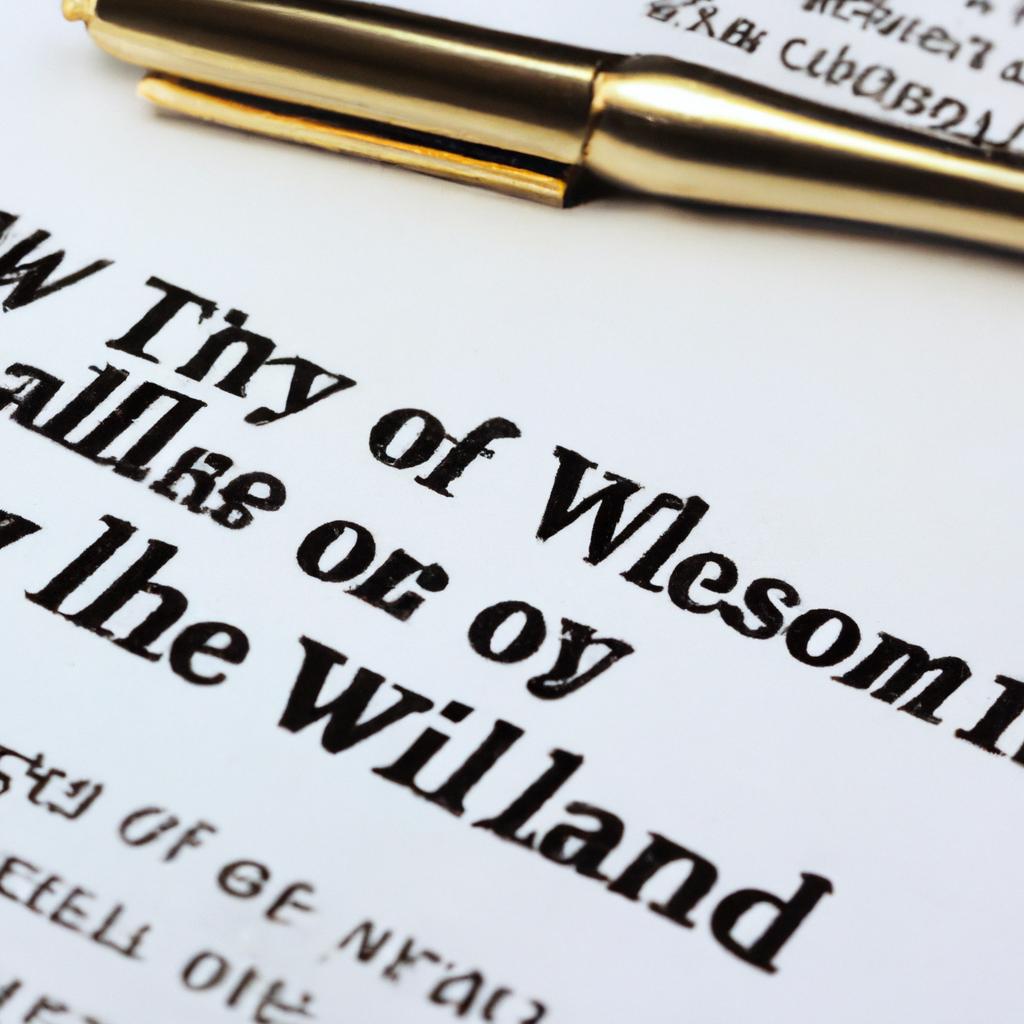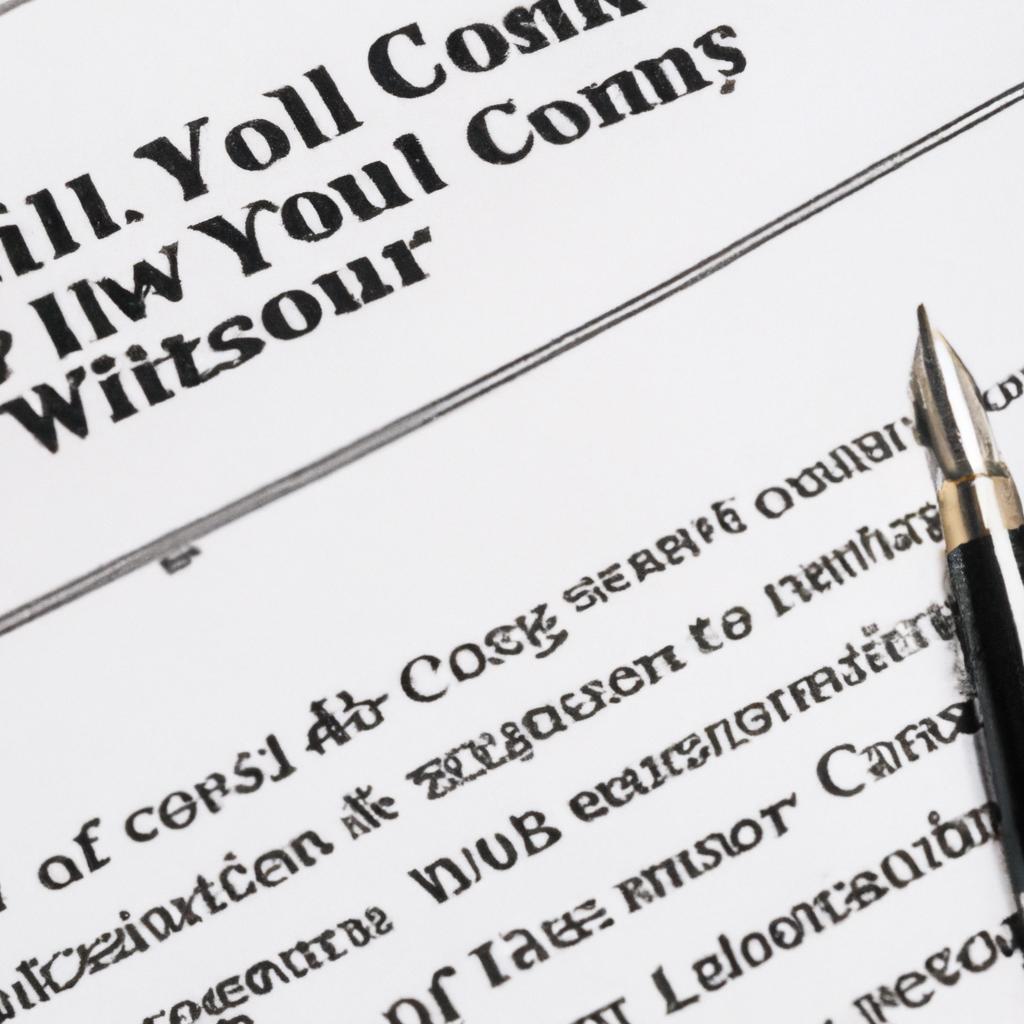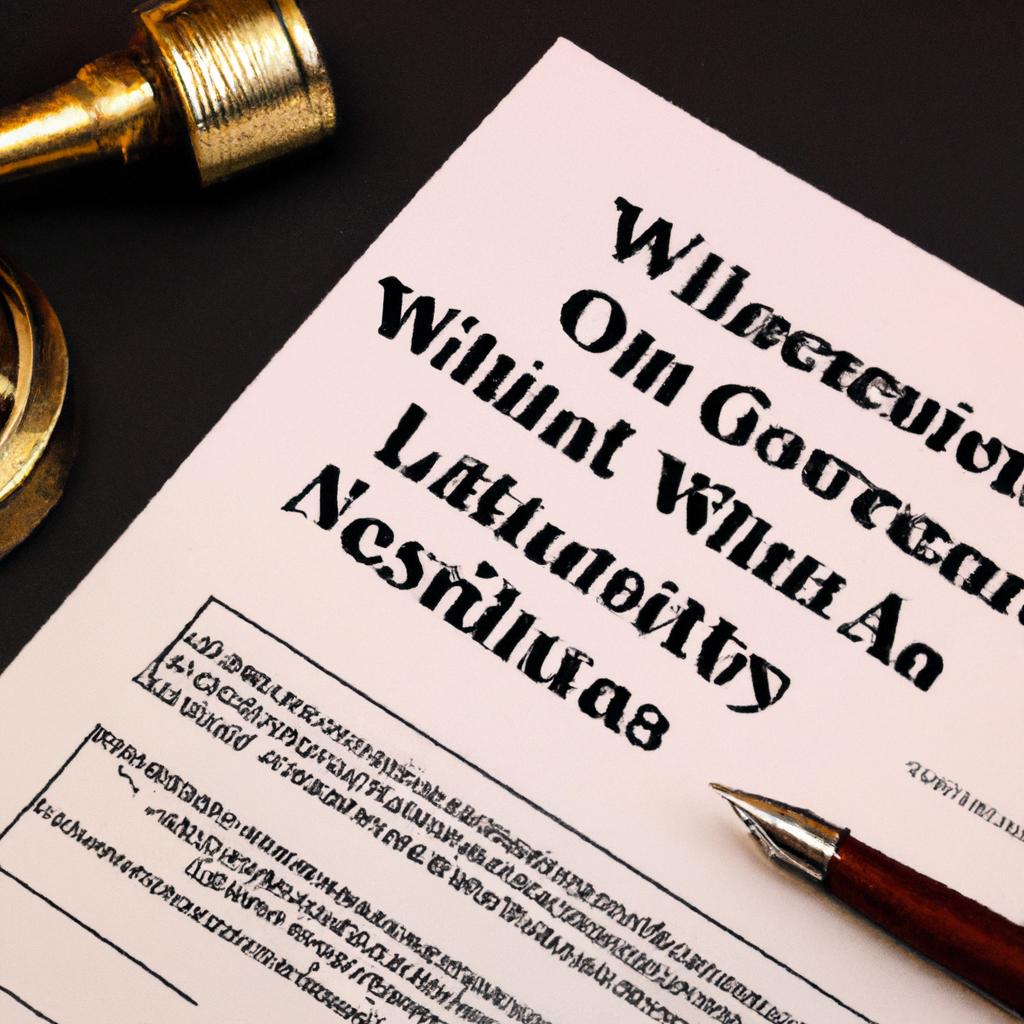In the realm of estate planning, the execution of a will is a crucial step in ensuring one’s final wishes are carried out posthumously. However, what happens when the validity of a will is called into question? In the intricate legal landscape of New York, contesting a will is a complex and highly regulated process that requires a keen understanding of the state’s laws and procedures. As experienced attorneys at Morgan Legal Group, located in the heart of New York City, we specialize in navigating the nuances of will contests to ensure our clients’ intentions are upheld with the utmost precision and integrity. Join us as we delve into the intricacies of how a will is contested in New York and the crucial steps involved in safeguarding the validity of your final wishes.
Challenging the Validity of a Will in New York
To contest the validity of a will in New York, there are several legal grounds that can be used to challenge the document. One common way to contest a will is by arguing that the document was not properly executed according to New York state law. This can include situations where the will was not signed in the presence of at least two witnesses, or where the testator did not have the mental capacity to understand the implications of signing the will. Another way to challenge a will is by claiming that the testator was unduly influenced by someone else when creating the will, leading to an unfair distribution of the assets.
In addition to the above grounds for contesting a will, it is also possible to challenge the validity of a will in New York by arguing that the document was procured through fraud or forgery. This can involve situations where the testator’s signature was forged on the will, or where false information was provided to the testator in order to influence the distribution of assets. Contesting a will in New York can be a complex legal process, requiring the assistance of an experienced estate planning attorney to navigate the intricacies of probate law and ensure that the wishes of the deceased are properly respected.
Grounds for Contesting a Will in New York
When contesting a will in New York, it is essential to understand the grounds on which a will can be contested. There are several reasons why a will may be challenged in New York, including:
- Lack of Capacity: If the testator did not have the mental capacity to understand the consequences of their actions when creating the will.
- Undue Influence: If someone exerted pressure or influence over the testator to write or change the will in their favor.
- Fraud: If the will was forged or altered without the testator’s knowledge or consent.
It is important to consult with an experienced probate attorney when contesting a will in New York to ensure that all legal requirements are met and that your rights are protected. Our team at Morgan Legal Group has years of experience in estate planning and probate law, and we are here to help you navigate the complexities of contesting a will.

Important Legal Procedures for Contesting a Will in New York
When contesting a will in New York, there are several important legal procedures that must be followed in order to have a successful outcome. One of the key steps in contesting a will is to gather evidence that supports your claim. This can include documents, witnesses, and other evidence that shows the validity of your case. It is important to work with an experienced estate attorney who can help you navigate the legal process and gather the necessary evidence to support your claim.
Another important legal procedure for contesting a will in New York is to file a petition with the Surrogate’s Court. This petition must outline the reasons why you are contesting the will and provide any evidence that supports your claim. The court will then review the petition and schedule a hearing to determine the validity of the will. It is important to present your case effectively during the hearing, as this can greatly impact the outcome of your claim. Working with a skilled estate attorney can help ensure that your case is presented effectively and increase your chances of success.

Strategies for Successfully Contesting a Will in New York
In order to successfully contest a will in New York, it is crucial to understand the legal grounds and strategies involved in the process. One key strategy is to gather evidence that supports your claim of contesting the validity of the will. This can include providing proof of undue influence, lack of testamentary capacity, fraud, or improper execution of the will.
Furthermore, it is essential to consult with an experienced attorney who specializes in estate litigation and has a deep understanding of New York probate laws. A knowledgeable lawyer can help you navigate the complexities of the legal system, draft a strong legal argument, and represent your interests effectively in court. Remember, contesting a will can be a lengthy and challenging process, but with the right strategies and legal support, you can increase your chances of success.
Q&A
Q: What is the process for contesting a will in New York?
A: Contesting a will in New York involves filing a petition with the Surrogate’s Court and providing evidence to support your claim.
Q: Who can contest a will in New York?
A: In New York, interested parties such as beneficiaries, heirs, or creditors may contest a will.
Q: What are some common grounds for contesting a will in New York?
A: Common grounds for contesting a will in New York include lack of testamentary capacity, undue influence, fraud, or improper execution.
Q: How long do you have to contest a will in New York?
A: In New York, the statute of limitations for contesting a will is usually within six months after the will is admitted to probate.
Q: What happens if a will is successfully contested in New York?
A: If a will is successfully contested in New York, the court may invalidate the will in whole or in part, and the property may be distributed according to intestacy laws.
Insights and Conclusions
In conclusion, contesting a will in New York can be a complex and emotional process. Knowing the legal grounds for contesting a will, understanding the necessary procedures, and seeking the guidance of a knowledgeable attorney are essential steps in navigating this challenging terrain. By being prepared and informed, individuals can seek justice and ensure that the final wishes of their loved ones are respected. Remember, when it comes to contesting a will in New York, knowledge is power.
 In simple terms, a will is a legal document that outlines a person’s final wishes for the distribution of their assets after their death. It is an important document that provides clarity and peace of mind to the testator (person making the will) regarding the fate of their assets. However, there may be instances where the validity of a will is challenged by disgruntled family members or other interested parties. This process is known as will contestation and is not uncommon in New York. This article will delve into the topic of how wills are contested in New York and the process involved.
In simple terms, a will is a legal document that outlines a person’s final wishes for the distribution of their assets after their death. It is an important document that provides clarity and peace of mind to the testator (person making the will) regarding the fate of their assets. However, there may be instances where the validity of a will is challenged by disgruntled family members or other interested parties. This process is known as will contestation and is not uncommon in New York. This article will delve into the topic of how wills are contested in New York and the process involved.
Grounds for Contesting a Will in New York:
Under New York state law, there are specific grounds on which a will can be contested. These include:
1. Lack of Testamentary Capacity:
This means that the testator was not of sound mind or was under undue influence at the time of writing the will. To establish this, the person contesting the will must prove that the testator did not have the mental capacity to understand the nature of their assets, the value of their property, and who would normally inherit in the absence of a will. This can happen due to mental illness, old age, or being under the influence of drugs or alcohol.
2. Undue Influence:
If a person is pressured, coerced, or manipulated in any way to make changes to their will, it is considered undue influence. The burden of proof lies on the person contesting the will to show that the testator was not acting of their own free will when making changes to their will.
3. Fraud:
If it can be proven that the testator was deceived or misled into signing a will, it can be declared invalid. This could happen if someone other than the testator forges their signature, or if the testator signs the will under false pretenses, such as being led to believe that it is a different document.
4. Improper Execution:
In New York, a will must be signed by the testator in the presence of two witnesses who must also sign the will. If this legal requirement is not fulfilled, the will can be challenged.
The Process of Contesting a Will in New York:
In order to contest a will in New York, the person must have legal standing. This means that they must have a direct financial interest in the outcome of the will. This includes spouses, children, and any other beneficiaries who would normally inherit if the will was declared invalid.
The process of contesting a will starts with filing a petition with the Surrogate’s Court in the county where the deceased resided at the time of their death. This must be done within six months of the will being admitted to probate (the process of proving a will is valid and carrying out its instructions). Upon filing the petition, the court will issue a citation to all interested parties, including the executor of the will, giving them notice that a will contest has been initiated. The executor then has eight days to answer the petition.
The court will then schedule a hearing to review the evidence presented by both parties. The burden of proof lies on the person contesting the will, and they must provide sufficient evidence to prove their case. The court will consider all relevant evidence presented, including the testimony of witnesses, medical records, and expert opinions. If the court finds the will to be invalid, it will be deemed void, and the estate will be distributed as per the state’s intestate laws.
Benefits of Contesting a Will in New York:
Contesting a will can be a lengthy and expensive process, but it can also have its benefits. If the court rules in favor of the contesting party, the will can be declared invalid, and the estate will be divided according to the state’s intestate laws, which can result in a more favorable distribution for the contesting party. Moreover, contesting a will can also bring to light any discrepancies or misconduct in the handling of the estate by the executor, ensuring that the deceased’s final wishes are carried out fairly.
Practical Tips for Contesting a Will:
If you are considering contesting a will in New York, here are some practical tips to keep in mind:
1. Seek Legal Assistance:
Contesting a will can be challenging, and it is important to have a skilled and experienced attorney by your side who can guide you through the process and represent your interests.
2. Gather Evidence:
To have a strong case, it is crucial to gather sufficient evidence to support your claims. This can include medical records, financial statements, and witness testimony.
3. Act Quickly:
In New York, the window for contesting a will is only six months, so it is important to act quickly to avoid missing the deadline.
4. Understand the Burden of Proof:
As the contesting party, you have the burden of proof to show that the will is invalid. Therefore, it is important to have a solid case and provide convincing evidence to the court.
In Conclusion:
While it is not easy or pleasant to contest a loved one’s will, it may sometimes become necessary to ensure that their final wishes are carried out fairly. New York state has specific laws and guidelines in place for such situations, and following the proper procedures is crucial for a successful outcome. Seeking legal assistance and understanding the process can help make the process less daunting and ensure that the deceased’s wishes are fulfilled.












